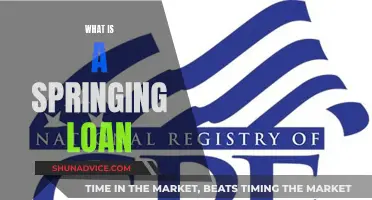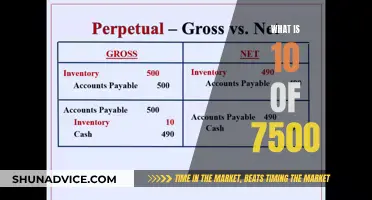
In the state of Illinois, payday loans are heavily regulated by the state's strict interest rate cap of 36% APR. However, some tribal lenders claim to be exempt from state and federal laws and offer loans with interest rates of 250% or more. While these tribal loans may be legal in Illinois, they are controversial due to their extremely high-interest rates and the potential for predatory lending practices. As a result, some tribal lenders have stopped issuing loans in Illinois, and the state has aggressively challenged these lenders in court through class-action lawsuits.
| Characteristics | Values |
|---|---|
| Tribal loan legality in Illinois | Technically legal, but some lenders are no longer issuing loans in Illinois |
| Typical APR for new customers | 350% |
| Typical APR for returning customers | Lower than for new customers |
| Illinois state law on maximum APR | 36% |
| Typical APR before state law change | Mid-triple digits |
| Tribal lenders' claim of exemption from state laws | Yes |
| Requirement for lenders to be licensed by the Illinois Department of Financial and Professional Regulation | Yes |
What You'll Learn
- Tribal lenders in Illinois are licensed by the tribe, not the state
- Some tribal lenders are no longer issuing loans in Illinois
- Payday loans in Illinois are heavily regulated by the state
- Tribal lenders claim they don't have to comply with state lending laws
- Illinois ranks as the 6th state for the most payday loan complaints

Tribal lenders in Illinois are licensed by the tribe, not the state
In Illinois, payday loans are heavily regulated by the state's strict interest rate cap of 36% APR. While lenders can still offer small loans that follow the payday loan structure, they can’t charge the excessive interest rates that previously made them predatory.
Technically, every lender has to be licensed by the Illinois Division of Banking. However, some tribal lenders are licensed by the tribe, not the state. If a lender is not appropriately licensed by the Illinois Department of Financial and Professional Regulation, the loan is not legally enforceable, and borrowers cannot be sued or arrested for defaulting.
Native American tribal lenders often claim that they do not have to comply with state lending laws and, therefore, do not obtain the necessary licenses to provide consumer loans. These loans are often made with extremely high interest rates, sometimes exceeding 500%.
In Illinois, Big Picture Loans, LLC is the tribal lender that consumers have the most problems with. They offer installment loans with exorbitant interest rates, with APRs for new customers starting at 350%.
Seller's Role in FHA Loan Process: What to Know?
You may want to see also

Some tribal lenders are no longer issuing loans in Illinois
In Illinois, payday loans are heavily regulated by the state's strict interest rate cap of 36% APR. In March 2021, Illinois Governor J.B. Pritzker signed The Predatory Loan Prevention Act, which put a cap on the interest rates of payday loans. Prior to this, APRs could reach the mid-triple digits.
Native American tribal lenders frequently claim that they are exempt from state lending laws and, therefore, do not require the necessary licenses to provide consumer loans. These loans often come with extremely high interest rates, sometimes exceeding 500%.
Technically, every lender in Illinois must be licensed by the Illinois Division of Banking. However, some tribal lenders are licensed by the tribe rather than the state. If a lender is not licensed by the Illinois Department of Financial and Professional Regulation, they are not enforceable, and borrowers cannot be sued or arrested for defaulting on their loans.
Due to the strict interest rate cap in Illinois, some tribal lenders are no longer issuing loans in the state. Big Picture Loans, LLC is one such lender that has stopped offering loans in Illinois. The company offers installment loans with extremely high-interest rates, with APRs for new customers starting at 350%.
Assumable Loans: Freddie Mac's Unique Offering Explained
You may want to see also

Payday loans in Illinois are heavily regulated by the state
In 2005, Governor Rod R. Blagojevich signed the Payday Loan Reform Act, which first introduced regulations for the payday loan industry in Illinois. This legislation provided new protections against predatory lending practices, such as creating a 120-day time limit on short-term loans to prevent lenders from offering slightly longer loans that would circumvent the rules. The law also empowered the IDFPR to enforce these new rules aggressively. Despite these reforms, payday loan regulations in Illinois were still considered lax, and high-interest loans remained legal.
In March 2021, Illinois Governor J.B. Pritzker took further action by signing The Predatory Loan Prevention Act. This legislation effectively capped the annual percentage rate (APR) on payday loans at 36%, eliminating finance charges and excessive interest rates that had previously trapped borrowers in debt. The Act also reduced fees, allowing lenders to charge only a $1 verification fee and a single $25 insufficient funds fee.
As a result of this Act, payday lending in Illinois has become all but extinct, and the state now has some of the strongest protections against predatory lending in the country. The IDFPR continues to supervise and license payday loan companies, promoting transparency and protecting consumers from illegal lending activities. The statute of limitations on payday loans in Illinois is ten years, and borrowers can submit complaints about lenders to the IDFPR.
The Twisted Web of Incest: Me Con Loan Luan
You may want to see also

Tribal lenders claim they don't have to comply with state lending laws
Tribal lenders claim that they don't have to comply with state lending laws, citing tribal sovereignty and immunity from state laws. They argue that they are governed only by federal laws, which do not currently have an interest rate cap, except for a 36% cap on loans to active-duty military members and their families. This loophole has allowed tribal lenders to offer loans with extremely high-interest rates, often over 100%, to financially vulnerable consumers.
However, this claim of immunity from state laws is disputed. While tribal sovereignty is recognized, it does not necessarily exempt them from complying with state lending regulations. Several states, including Illinois, have challenged tribal lenders in court through class-action lawsuits, and some tribal lenders have stopped issuing loans in Illinois as a result.
In Illinois, payday loans are heavily regulated by the state's strict interest rate cap of 36% APR. This was enacted in March 2021 when Illinois Governor J.B. Pritzker signed The Predatory Loan Prevention Act. While lenders can still offer small loans, they cannot charge excessive interest rates that previously made them predatory.
Despite the efforts of some states to curb predatory tribal lending, the industry has been protected by lobbyists and politicians for over a decade. Additionally, the complexity of the cases and the presence of arbitration clauses in loan agreements have made it challenging for private attorneys to pursue legal action against tribal lenders.
To avoid legal complications and the debt trap associated with tribal loans, borrowers are advised to carefully review loan paperwork, calculate the rates being paid, and research the lender's online reputation.
Becoming a Loan Signing Agent: Nevada Requirements
You may want to see also

Illinois ranks as the 6th state for the most payday loan complaints
In Illinois, payday loans are highly regulated by the state's strict interest rate cap of 36% APR. Despite this, Illinois ranks 6th in the US for the most payday loan complaints. Before 2021, Illinois allowed lenders to charge $15.50 per $100 borrowed, which outraged many consumers. In 2019, Illinois consumers paid $607.4 million in interest and fees on more than 1 million payday loans, according to the Woodstock Institute.
The most common complaint against payday lenders in Illinois is that they charge unexpected fees and interest. AmeriCash Holding, LLC, is the most complained-about lender in the state, with consumers struggling to pay off loans due to high prices. Big Picture Loans, a tribal lender, is another company that has attracted many complaints for similar reasons.
The Illinois Department of Financial and Professional Regulation (IDFPR) is responsible for supervising financial institutions in the state, including payday loan companies. The IDFPR issues licenses and enforces regulations, and consumers can check the status of a payday loan company before doing business with them. Additionally, payday lenders in Illinois must input all consumer loans into their Consumer Service Reporting database to promote transparency.
Consumers in Illinois have the right to submit complaints about illegal lending activities to the IDFPR or the Consumer Financial Protection Bureau (CFPB), a federal agency that assists consumers with financial issues. The passage of the Predatory Loan Prevention Act in 2021 has helped to curb the number of high-cost consumer loans in the state, and there are now fewer payday lenders operating in Illinois.
Missing Documents: Nelnet Loans and National Collegiate's Impact
You may want to see also
Frequently asked questions
Tribal lenders frequently claim that they do not have to comply with state lending laws, and therefore do not get the necessary licenses to provide consumer loans. However, if the lenders are not licensed by the Illinois Department of Financial and Professional Regulation, they are not enforceable.
Tribal loans in Illinois have been known to have interest rates of 250% and sometimes over 500%. Payday loans in Illinois, however, are heavily regulated by the state's strict interest rate cap of 36% APR.
No, you cannot be sued or arrested for defaulting on a tribal loan in Illinois. Any third party who tries to collect the loans will violate the Fair Debt Collection Practices Act.
The safest course of action is to avoid these loans altogether. Many borrowers are under the impression that they’re paying the legally-mandated 36%, only to find out that they’re being charged an APR of 800% or more in biweekly installments.







